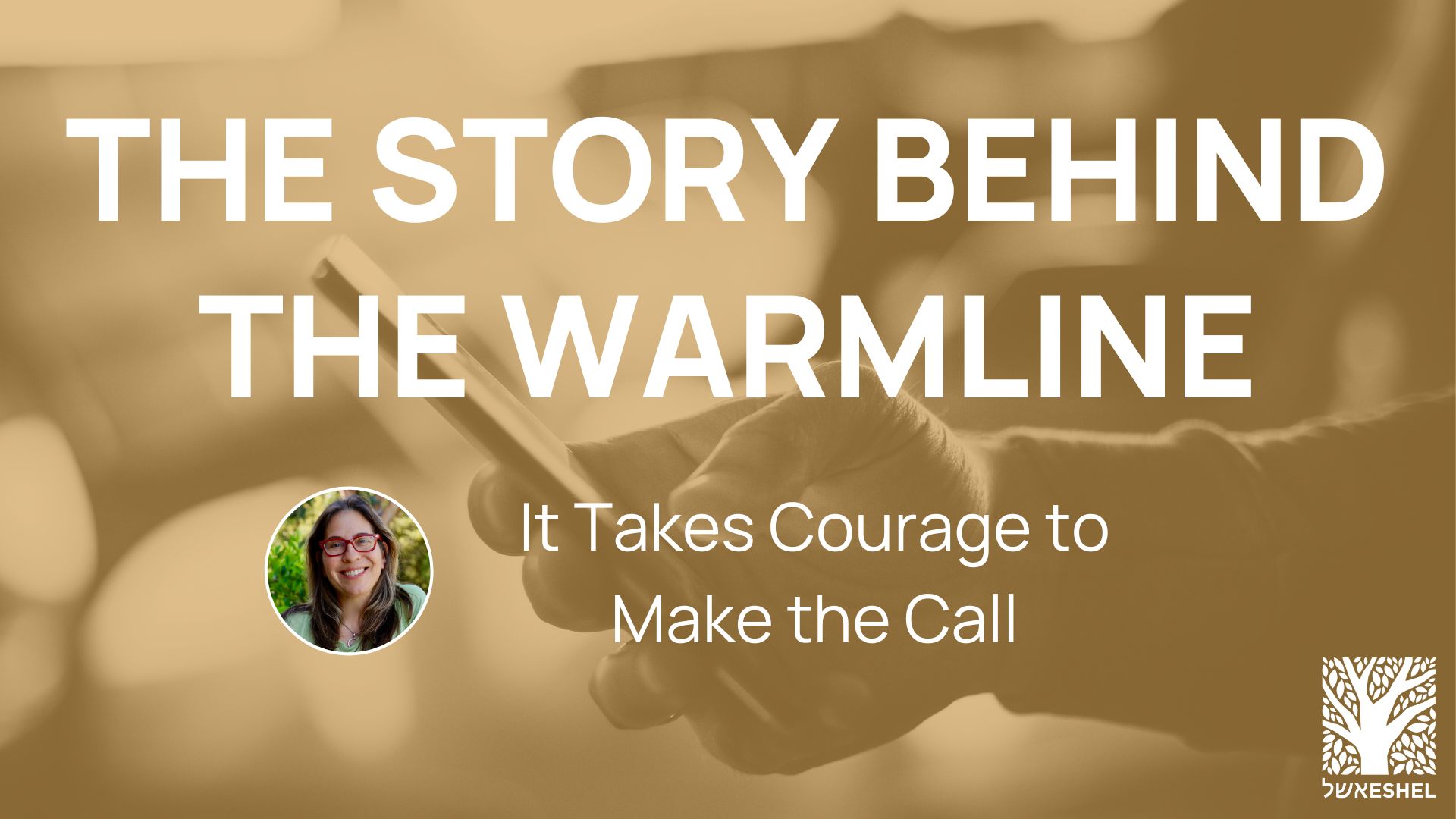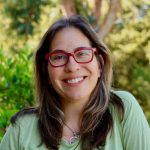
Before Eshel began, I ran a support group for Orthodox women who were LBT. I opened a phone line so people could contact me. Not exactly knowing what I was getting myself into, I thought I would just get calls from women wanting information about the group: Where did it meet? When? Is it right for me? Questions like that. Little did I know that without many resources out there, that number would become a helpline to many others, women and men of different gender identities and sexual orientations, from those who had left the Orthodox community to Charedim, who just wanted to know if they were “normal” for whatever they were experiencing. Our motto was “You are not alone”.
Fast forward to today, and Eshel’s warmline continues to be a place people can find a listening and reassuring ear, and gain hope to allow them to keep going. Eshel’s warmline rings often and our calls come from people from all walks of life. They all want to know if what they are experiencing is “normal” and if they will be OK. They call asking how they can live happy and fulfilled lives, spiritually, physically, and in every other way, in their communities.
Sometimes, we don’t hear what happens after that phone call, and we hope that the comfort and resources that we were able to provide, and the knowledge that they will be ok, will sustain them. Other times, the people who call our warmline stay connected to us, and we get to find out how the situation that they called about resolved. They may join one of our support groups and find other people like them, and feel even less alone. They may come to one of our LGBTQ+ or parent retreats a few years later, and we get to see the uncertainty and fear at the time of their first call turn into self-assurance and pride.
Sometimes, an LGBTQ+ person or parent needs help from someone else to take the first step in reaching out for help. We often receive calls from children calling on behalf of their parents when a child comes out, or siblings and friends calling for an LGBTQ+ person in their life that they care about.
We first received a call from “Malka,” calling on behalf of her sister “Chana.” Malka was worried about Chana’s mental health. Chana had confided in her that she could no longer live a lie, and felt torn about the double life she had been living. Chana loved her husband and family, but felt she could not stay married because she was gay.
Malka told us that Chana’s realization was causing her a great deal of emotional turmoil. She was struggling to reconcile her identity within the context of her faith, and was worried about what would happen to her and her family if she came out, given that they were deeply integrated into their local Orthodox community. Malka said to us that Chana had mostly accepted herself, but needed our advice and guidance on how to make the future she wanted a reality.
After I spoke to Malka and talked to her about the help we thought we could provide to Chana, she began to try to convince Chana to talk to me. When Chana and I finally spoke on the phone, we spoke for a long, long time. That phone call signified the end of her life, the way she had been living it. Even though it was clear that this life was no longer tenable for her, it was the only life she knew. It took a tremendous amount of courage and support for her to take that first step, and make the call to begin building her new life.
Malka later thanked me for the help that I gave to Chana. She described to me the lightness that Chana felt after hanging up and relieving her burden for the first time and proactively seeking some help.
“I can’t thank you enough for reaching out. She called me right after and I am unable to describe the change and relief I felt in her. Just that one conversation already gave her the confidence and validation she has been needing to accept herself. I saw the true Chana again for the first time in months.”
Chana kept in touch with us. She joined one of our support groups where she met others in a similar situation. She is able to gain strength from being part of that community, who share experiences, questions, and wisdom with one another.
For many, just making the call is a huge leap of faith, requiring them to acknowledge and name out loud what is going on, and to share with another person. Our warmline is open 24 hours a day for anyone to call and leave a message, and we will reach back out to listen and support you. You can also text us if that’s more comfortable.
And now, when you call every Tuesday and Wednesday between 5:30 – 8:00 pm ET, someone will be there to pick up right away.
Whichever option you choose, we are here to support you and your loved ones. Make the call.

